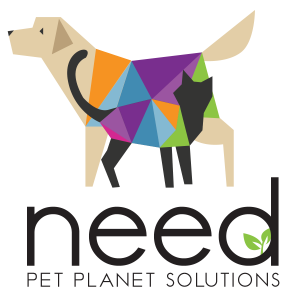Dogs and cats, especially puppies or kittens, can get into everything! Be aware of the plants you have in your home and yard. The ingestion of azalea, oleander, castor bean, sago palm, Easter lily or yew plant material by an animal can be fatal.
Household Dangers
Never allow your pets to have access to the areas in which cleaning agents are being used or stored. Cleaning agents have a variety of properties, some may only cause mild stomach upset, but others can cause severe burns of the tongue, mouth and stomach.
If you must use rat, mouse, snail or slug baits, or ant or roach traps, place the products in areas that are inaccessible to your pet. Most baits contain sweet smelling inert ingredients, such as jelly, peanut butter or sugar that can attract your pets.
Never give your pet medications unless you are directed to do so by a veterinarian. Many medications that are safe for humans can be deadly for animals. For example, one 500mg acetaminophen tablet can kill a cat weighing seven pounds. Keep all prescription and over the counter drugs out of your pet’s reach, preferably in closed cabinets. Pain killers, cold medicines, anti-cancer drugs, antidepressants, vitamins and diet pills are all examples of human medications that can be lethal to animals, even in small doses. For example, one 200mg ibuprofen tablet can cause stomach ulcers in a puppy weighing 10 pounds.
Chocolate
Never leave chocolate unattended. Chocolate contains a chemical called theobromine- and when ingested by your pet cardiac (heart) failure can occur within 6-24 hours. There may not be any indicative signs of your pet starting to go into cardiac arrest until collapse. Darker chocolate is the worst. 10 oz of light or milk chocolate can be lethal where as 1 oz of bakers chocolate is lethal. Even small amounts can cause problems. Be aware and cautious around the holiday seasons; especially when chocolate and candy is commonly around the house, such as at Christmas, Valentine’s Day, Easter and Halloween.
Household Items
Many every day household items can be lethal to puppies. Mothballs, potpourri oils, coffee grounds, homemade play dough, fabric softener sheets, dish washing detergent, batteries, cigarettes, alcoholic drinks are all highly toxic, even in small quantities. It is neither funny nor acceptable to give a dog alcohol, they are not humans and their systems can’t handle it. Dogs will eat and drink anything especially if it is sweet smelling. Please be an advocate for a dog who is being given alcohol. It is abusive!
Sani-flush and other similar products in toilets are extremely toxic. Some puppies will investigate and have a drink from the bowl. Even if your dog has never done it before, and does not usually drink out of the toilet, it could happen. Flea Products can also be harmful to some puppies.
Read all of the information on the label of pet or home products before using it on your pet or in your home. Always follow the directions and consult your vet with any questions if in doubt about the safety to your pet. Just because a product is on the market doesn’t necessarily make it a safe product for pets.
If a product is for use only on dogs, it should never be used on cats; if a product is for use on cats, it should never be used on dogs. Always store such products in areas that are inaccessible to your pet.
Watching Outdoors
Make sure your pet does not go on lawns or in gardens treated with fertilizers, herbicides or insecticides until they have dried completely (if at all).




